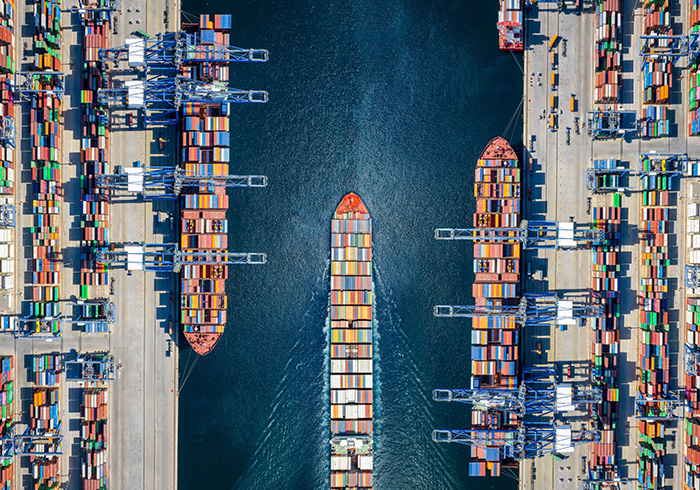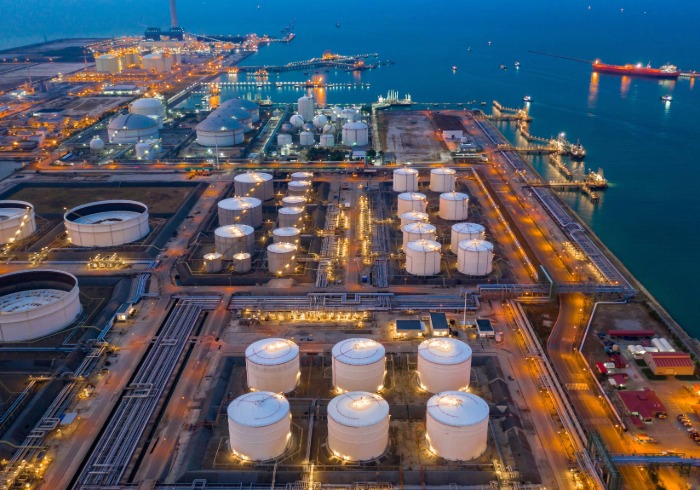Over the last 25 years, the European Bank for Reconstruction and Development (EBRD) has provided a vital lifeline to lenders in countries or regions grappling with political or economic uncertainty through its Trade Facilitation Programme.
Today, with the threat of conflict, environmental disaster or other economic shocks continuing to impact trade, the programme is continuing to evolve.
GTR speaks to Shona Tatchell, who joined EBRD in May last year as director of the Trade Facilitation Programme, to discuss some of the challenges in the regions where it is active, how the institution is responding, and which specific areas of trade finance are becoming more prominent.
GTR: EBRD launched the Trade Facilitation Programme over 25 years ago in response to economic uncertainty in Eastern Europe and beyond. As uncertainty remains a prominent theme across international trade, how would you characterise the programme today?
Tatchell: The Trade Facilitation Programme was originally established as a so-called sunset programme, that would be there for a short time to underpin the markets we were operating in. The idea was to help banks in those markets grow, develop and become more acceptable as a credit risk on a clean basis, without the need for collateral. Our guarantees were effectively there as a support mechanism until such time as they could evolve and stand alone.
Since then, the world has gone through ups and downs, whether that’s economic shocks, natural disasters or war. These kinds of events can all cause credit difficulties in countries, and as a result, our programme has always been needed to help ease the flow of trade and smoothen out pricing. What we’re now looking to do is evolve to meet the needs of a more digitalised world, as well as potentially a more volatile one.
One of our priorities for this year and the next will be opening up new countries of operation in Sub-Saharan Africa – Benin, Senegal, Côte d’Ivoire, Nigeria, Kenya and Ghana – as well as in Iraq.
GTR: EBRD has been highly active in Ukraine since Russia’s invasion in 2022. Could you tell us about your work there?
Tatchell: Ukraine has been a major focus for us over the last year. We’re supporting transactions across the board, whether it’s for food, fuel or pharmaceuticals, and without us the lights would go off. We’re also helping support and fund a lot of the rebuilding of energy systems, with more focus on decentralised and renewable electricity generation.
Some of our work in Ukraine is technical assistance, such as capacity building through training and workshops. There has been a lot of compliance training too, as the Russian sanctions are a major issue in this region and have had an impact on correspondent banking. There is also work on factoring, such as helping introduce a legal framework along with invoice registries that can reduce the risk of fraud.
GTR: You mention the difficulties around correspondent banking relationships in some of the markets considered higher-risk. How bad is the de-risking situation?
Tatchell: This isn’t a new issue, of course, but correspondent banking has shrivelled in some of the smaller economies, in the more difficult parts of our region. There are very few banks that will still engage in those markets.
Rather than leave any of our countries completely cut off from being able to clear dollars, for example, we’ve been showcasing the different types of tech solutions out there.
GTR: In terms of specific trade finance products, how significant are factoring and supply chain finance to EBRD’s work, and what kind of areas are you focusing on?
Tatchell: We are focusing heavily on factoring, including through our partnership with FCI. That’s looking at helping partner banks through workshops, advisory, consulting and trying to build awareness and capacity for this product. We believe factoring will really grow access to finance for SMEs, whether it’s cross-border or domestic.
Local currency is an important piece to focus on here. Last year, we started offering local currency factoring in Georgia and Armenia, which has proven to be very successful. A lot of countries don’t want SMEs to be exposed to foreign exchange risk, so they prefer when the financing can be provided in local currency.
Again, a lot of our work is on the legal reform side. Our colleagues have been working with governments to help draft factoring laws, and that is so important because it gives certainty to the market. That makes adoption much more likely in that market.
As I mentioned in relation to Ukraine, we are also looking at invoice registries, to combat fraud and ensure there is no double financing happening. This kind of digital infrastructure is so important because it gives you certainty over who owns an asset. Some countries already have these in place, but we’re looking at what we can do in other markets.
GTR: We have seen some significant developments around digitalising trade in the last few years. How are you approaching this topic?
Tatchell: Helping with the development of digitalised trade is one of our key strategies. We don’t want any of our partner banks to be left behind as trade evolves into a new digital era.
Again, lots of what we’re doing around that is training. We’re launching an innovation lab, which is going to be an online community following the same kind of structure as our online advisory platform, but focused on what’s happening around digital technology.
That will become a knowledge hub, showcasing fintechs, covering innovation that is happening and hosting white papers, essentially providing anything we believe is important for our banks to know. This can then offer an opportunity for banks to test technology with these fintechs in a sandbox-type environment, and potentially lead to funding opportunities for running pilot programmes.
GTR: Green and sustainable finance has become a contentious topic in some markets, notably North America. To what extent is it still a central pillar of the Trade Facilitation Programme?
Tatchell: In our view banks throughout our regions are still wholeheartedly supportive of the green transition.
We continue to have a full commitment to green financing, and the development of our green programme has been really successful: the Trade Facilitation Programme provided €1.1bn in green financing last year.
Some of that work is helping banks understand how we assess those transactions and make sure we are aligned. We have a team of consultants based in Vienna who are assessing underlying transactions to see how they can help with reducing the carbon footprint of capital investment.
For example, if there is investment in new machinery to replace old machinery, that can potentially be deemed as reducing that entity’s carbon footprint and so can be assessed as green. We can give special preferential pricing or longer tenors to those transactions, in certain markets.
We also support certified green commodities, or products that are inherently sustainable, such as scrap steel for recycling, solar panels or wind turbines.







